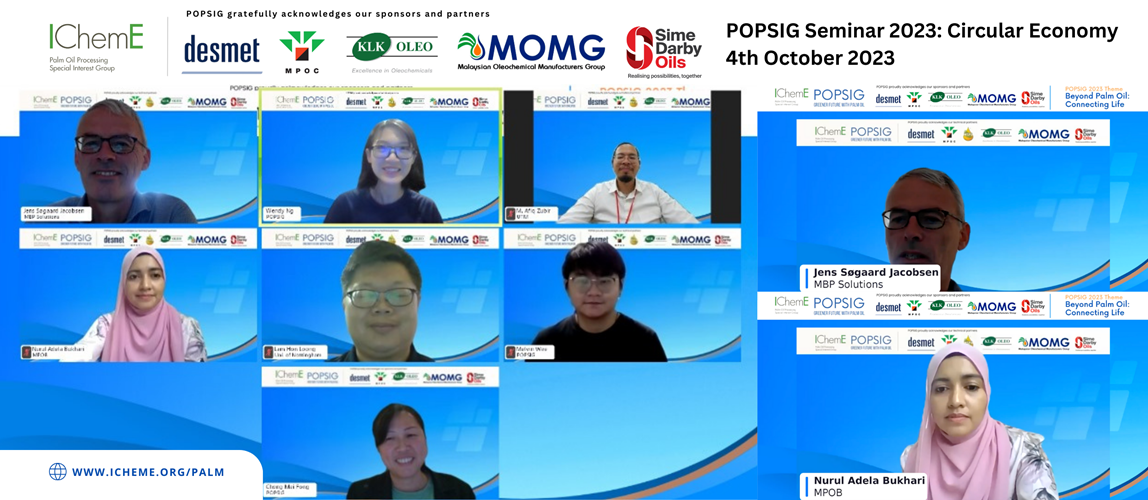Palm Oil Processing
East-West Technical Exchanges on Palm Oil Global Outlook

4th October 2023
Overview
The global palm oil industry has been historically beset by sustainability issues. A sustainable and circular economy approach in the palm oil global outlook aims to tackle these problems, laying a foundation for ethical, environmental, and economic viability.
This seminar aimed to address the pressing challenges that have long plagued palm oil production. We explored innovative ways to integrate sustainable and circular economic principles into the palm oil supply chain. The integration of sustainability and circular economy into the palm oil supply chain, can transform this contentious industry into a paragon of sustainability.
Summary
Mr Jens Søgaard Jacobsen, Chief Sales Officer, Senior Leadership Team and Partner, MBP Solutions Limited, Switzerland
Mr Jacobsen introduced the by-products from the palm oil industry. He shared that MBP Solutions aimed to turn one industry's by-products into another industry's raw materials. They worked with numerous sectors, including Omega 3, oleochemical, biodiesel, nutritional supplements, pharma, fish rendering, food and beverage. Their by-product applications ensured improved sustainability, best economic returns and continuous improvements. MBP operates to search for alternatives to landfilling and ensures recycling with documentations.
Legislation is one of the value drivers for by-products. This included EU Renewable Energy Directive (RED) and national blending mandates, EU national energy product excise schemes, protection of waterways from industrial effluents, and green energy policies in other countries (Japan, South Korea, USA etc). GHG reporting that aims to support company reduction target was also one of the key drivers.
Mr Jacobsen shared that EU RED III aimed to increase the target for renewable energy from 21.8% (in 2021) to 42.5% (in 2030). EU RED I triggered sustainability certification, for example ISCC EU, and FAME production in Europe; EU RED II boosted FAME production and POME was classified as "advanced feedstock". In 2023, ISCC required palm oil certification for mills.
Dr Nurul Adela Bukhari, Research Officer, Energy and Environment Unit, Engineering and Processing Research Division, Malaysian Palm Oil Board
Dr Nurul Adela shared that the abundantly generated oil palm biomass is promising as a feedstock for biorefinery. Wastewater from the palm oil industry is a valuable sources for establishment of a circular economy. Further works are required to establish the techno-economic feasibility of large-scale bioconversion. Resource optimisation and technology integration are keys to successful implementation of a bioeconomy.
Dr Muhammad Afiq Zubir, Senior Lecturer, Universiti Teknologi Malaysia
Dr Afiq shared that energy sector is the highest emitter followed by agriculture, forestry and land use sector. He presented the organisational level GHG accounting, which included Scope 1 (direct), Scope 2 (indirect) and Scope 3 (indirect, in upstream and downstream activities). Dr Afiq also showed the efforts on sustainability and reducing GHG emission for palm oil industry.
Acknowledgement
POPSIG management gratefully acknowledges the support provided by Desmet Malaysia Sdn Bhd, Malaysian Palm Oil Council (MPOC), Kuala Lumpur-Kepong Oleomas Sdn Bhd (KLK OLEO), Malaysian Oleochemical Manufacturers Group (MOMG), and Sime Darby Oils (SDO) to our activities.
Back to group news